Climate change and flooding
Climate change results in more intense rainfall, which increases the chances of flooding.
A view from above of flooding in Balochistan in Pakistan. Image: Arif Shah/Oxfam
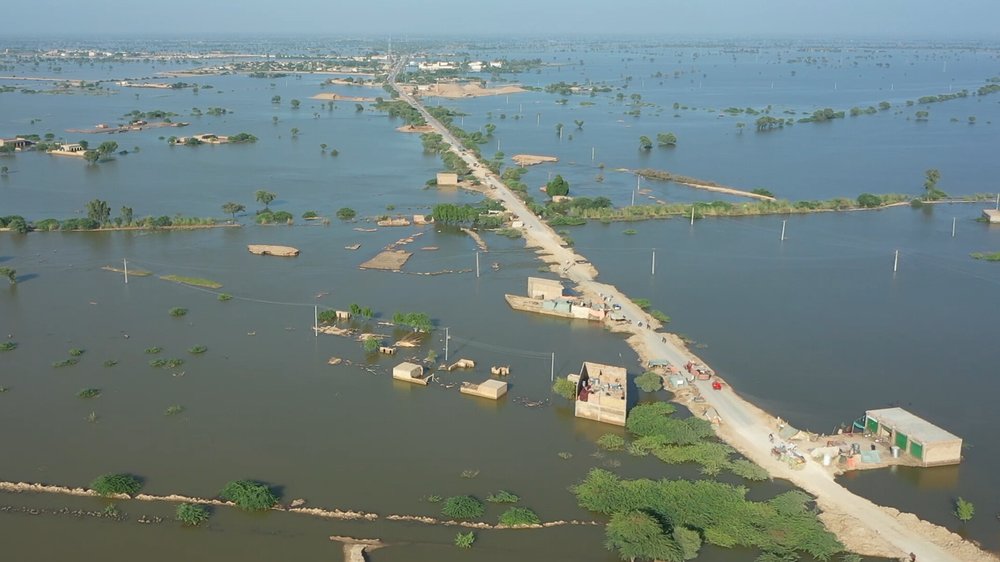
What types of flooding are there?
“Eventually the water took everything. It washed away our house and all of our things. It even washed away the land that the houses had stood on. All we managed to save were a few documents and the clothes on our backs. I feel so vulnerable, our house was a safe space where we felt peaceful. We no longer have a place to feel secure.”
A Woman living in Timor-Leste which was hit by Cyclone Seroja on the 4th of April 2021.
How does climate change cause flooding?
“In East Africa, nearly 40 million people are experiencing climate-induced hunger. Catastrophic floods in Pakistan have inflicted more than $30 billion in damages and economic losses and left 10 to 12 percent of the country’s land area under water, affecting more than 33 million people. The list of extreme weather events and disasters is growing, as are the devastating impacts on communities.”
Gabriela Bucher, Oxfam International’s Executive Director.
Ghulam Fareed wades through floodwater in Pakistan. Image: Ingenious Captures/Oxfam
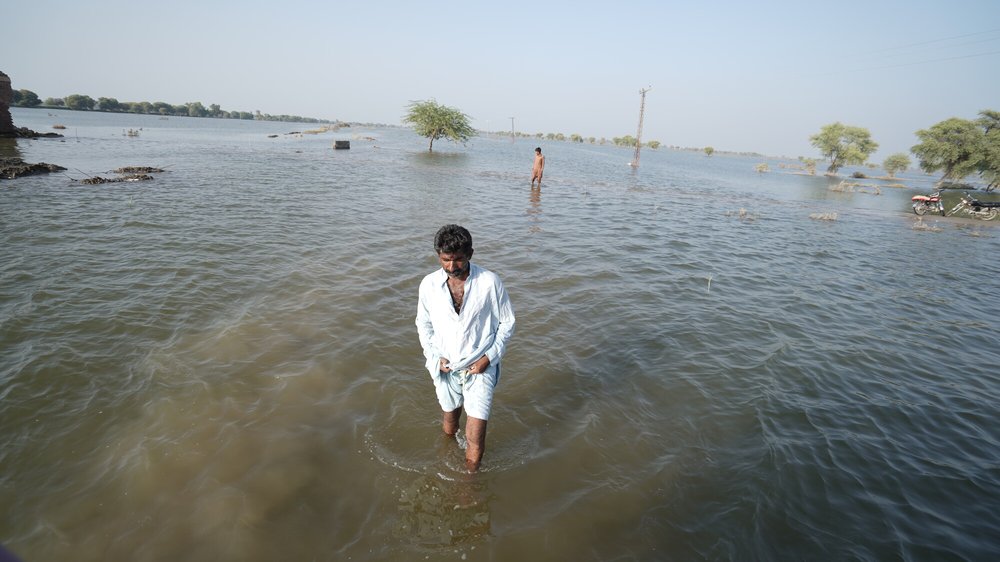
| Disasters happen when... |
|---|
| The geographical area where the community is settled is exposed to a hazard (for example, extreme rainfall). |
| The society (including individuals) and its infrastructure, assets and other processes - as well as services which may have experienced damage or destruction - are vulnerable. |
| Oxfam no longer uses the term ‘natural disaster’ as this removes human responsibility and, in most cases, there is nothing ‘natural’ about the disaster. |
Who does flooding affect?
“The establishment of a loss and damage fund is a monumental achievement for communities at the frontlines of the climate crisis. They have been calling for funding to cope with the devastating impacts of climate change for over 30 years. Given the urgency on the ground, the fund must be operationalised as soon as possible. Rich countries largely responsible for warming our planet should immediately mobilise substantial new and additional resources to pay for climate-related damage in vulnerable countries.”
Gabriela Bucher, Oxfam International’s Executive Director.
Tackling inequality is vital for those facing climate change and flooding
Oxfam in Pakistan initiated a response plan with local partner Tameer e Khalaq Foundation targeting 3,000 families. This is a distribution of Hygiene kits, Dignity kits, and more. Image: Ingenious Captures/Oxfam
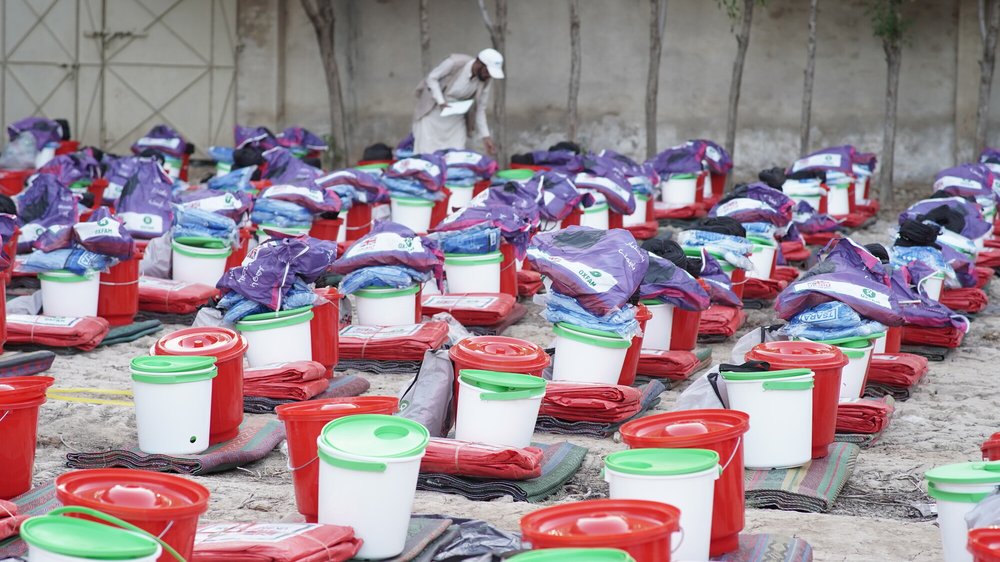
How can I help stop climate change and flooding?
“Rich countries, especially the US and those in the EU, have failed to use their power and resources to meet their fair share of responsibility and their moral and legal obligations. Rich countries and many middle-income countries that have the ability to do so are not transitioning away from fossil fuels fast enough to keep warming below 1.5°C, leading to more losses, damages and suffering. Rich countries are not providing the necessary finance to support developing countries to leapfrog to renewable energy.”
Gabriela Bucher, Oxfam International’s Executive Director.
What do I do if I am worried about being affected by flooding?
More posts like this

The climate crisis isn't in the future. It's here now, pushing people deeper into poverty. Polluters must pay for the damage they've caused, so all of us can thrive.
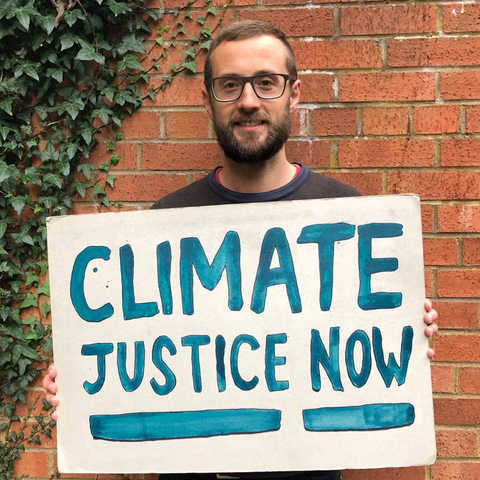
– How can we help climate change stop hitting those who have done the least to cause it first and worst? And what can we do to stop climate change?
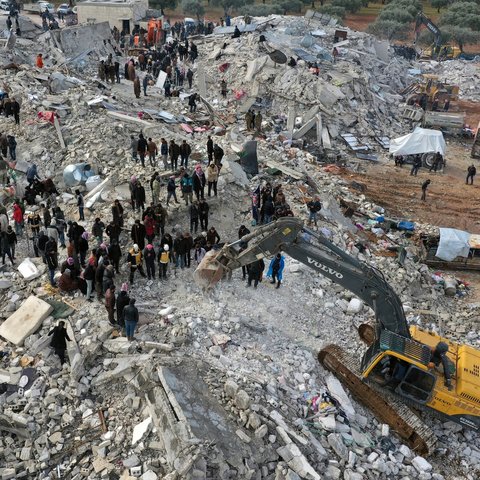
– Find out ways those of us in the UK can help support earthquake survivors in Turkey and Syria.
